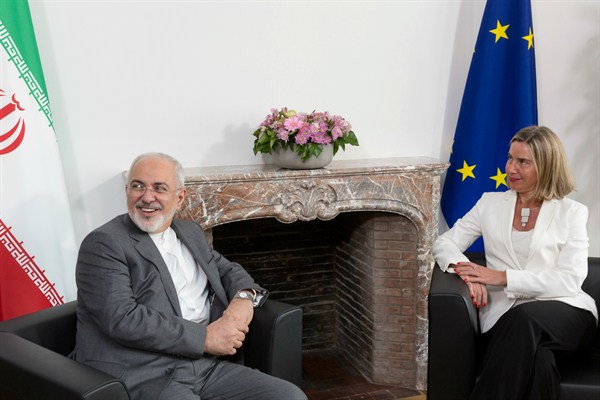Stop me if you’ve heard this one before. Last week, in response to U.S. President Donald Trump’s decision to withdraw from the Iran nuclear deal, German Chancellor Angela Merkel solemnly declared that from now on Europe would have to take its destiny in its own hands.
It’s hard to disagree with Merkel. But that was already true the first time she expressed the sentiment in May 2017, in the aftermath of Trump’s first visit to Europe as president. In the meantime, Europe has not done anything to fundamentally address the challenge of managing trans-Atlantic relations under Trump. As a result, a week after the U.S. withdrawal from the Iran nuclear deal—officially the Joint Comprehensive Plan of Action, or JCPOA—it is becoming increasingly clear that Europe will be hard pressed to back up its outrage with actions to defend the agreement—and its interests.
Prior to Trump’s decision, there was a lot of talk about the ways that Europe might avoid, deflect or counter U.S. secondary sanctions, which target not just Iran, but any entities doing business with Iran, to allow European corporations to enter the Iranian market, thereby providing Tehran with enough incentive to remain in the nuclear deal. And after his announcement, the three European signatories to the JCPOA—France, Great Britain and Germany—immediately launched talks with Iran to salvage it.

